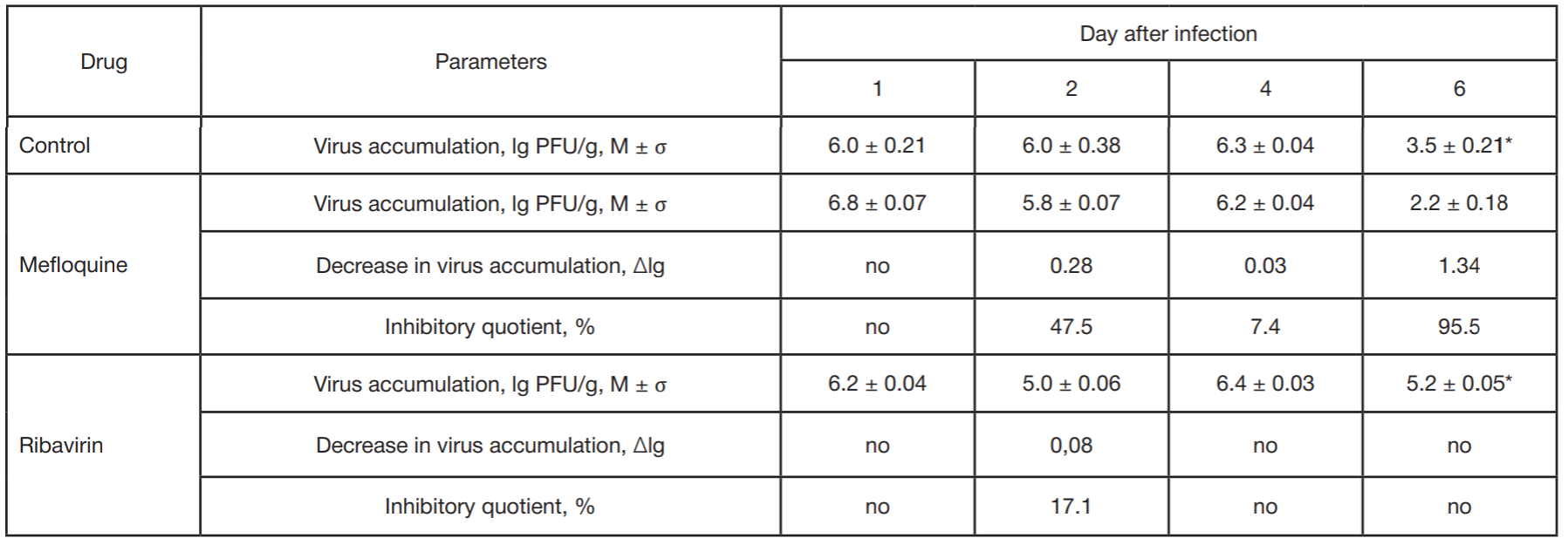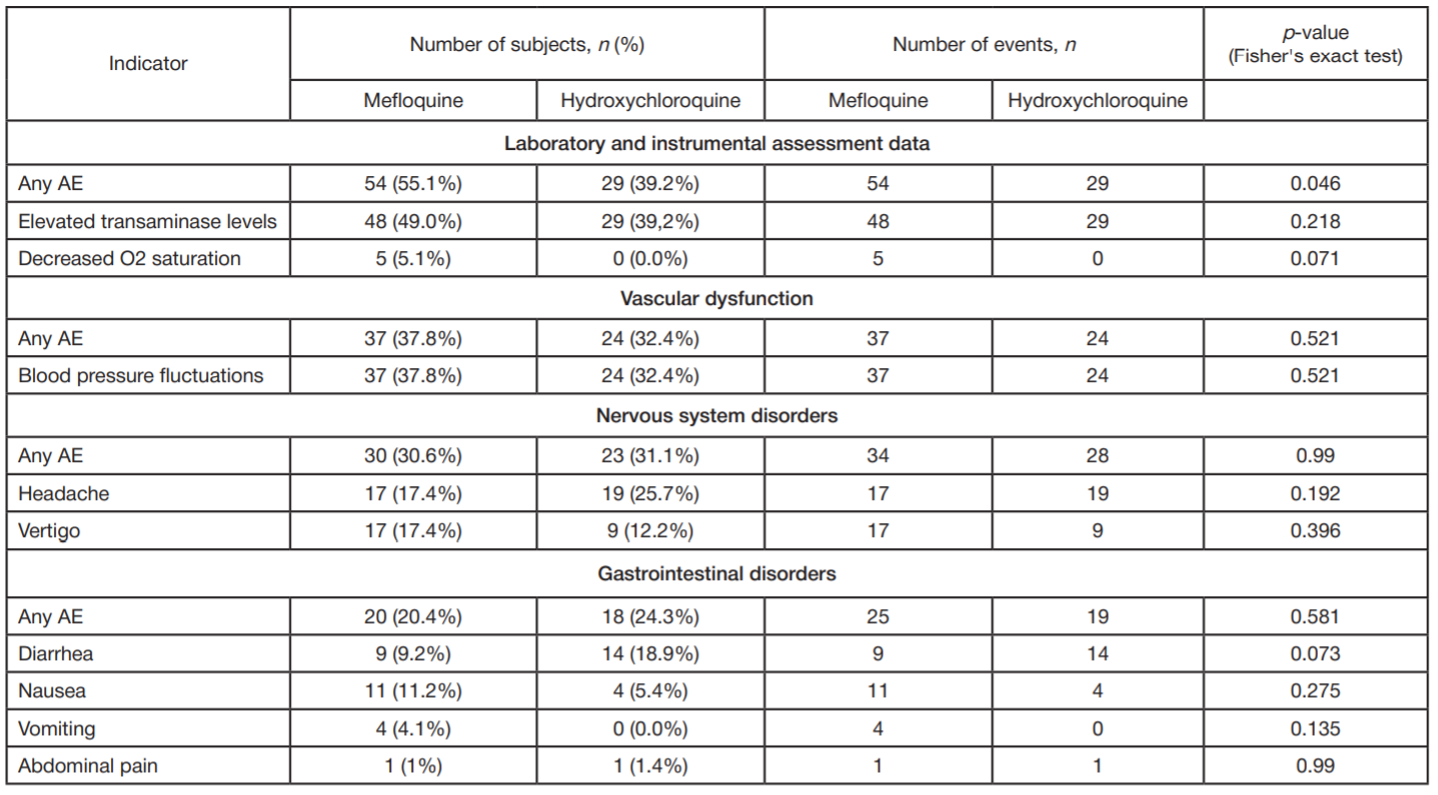
This article is an open access article distributed under the terms and conditions of the Creative Commons Attribution license (CC BY).
ORIGINAL RESEARCH
Experimental and clinical evaluation of mefloquine effectiveness against the infection caused by SARS-CoV-2
Federal State Unitary Enterprise Research & Production Center "Pharmaceutical Protection" of Federal Medical Biological Agency, Khimki, Moscow Region, Russia
Correspondence should be addressed: Vadim D. Gladkikh
Vaschutinskoe shosse, 11, g. Himki, Moskovskaja oblast, 141402; ur.relbmar@7002hcikdalg
Author contribution: Filin KN — study concept and design, manuscript writing; Gladkikh VD — manuscript writing and editing; Bykov VN — literature analysis, data acquisition and processing, manuscript writing.
Compliance with ethical standards: animal experiments were approved by the Bioethics Commission of RMC “Home of Pharmacy» (protocol № 3.71/20 dated December 23, 2020); all the procedures involving animals were performed in accordance with the Directive N 2010/63/EC of the European Parliament and of the Council of the European Union "On the Protection of Animals Used for Scientific Purposes" of September 22, 2010. The animals' housing and care complied with GOST R 53434-2009 (Principles of Good Laboratory Practice) and the Guidelines for Laboratory Animals (2010). The clinical trial was approved by the Ethics Commitees of the clinical centers of Burnasyan Federal Medical Biophysical Center of FMBA, Federal Clinical Center for High Medical Technologies of FMBA, Center for Specialized Medical Assistance and Medical Technologies of FMBA, National Medical Research Center for Otorhinolaryngology of FMBA; the trial was carried out in accordance with the Russian Federation Government Decree № 441 of April 3, 2020; the informed consent was obtained from all patients.



